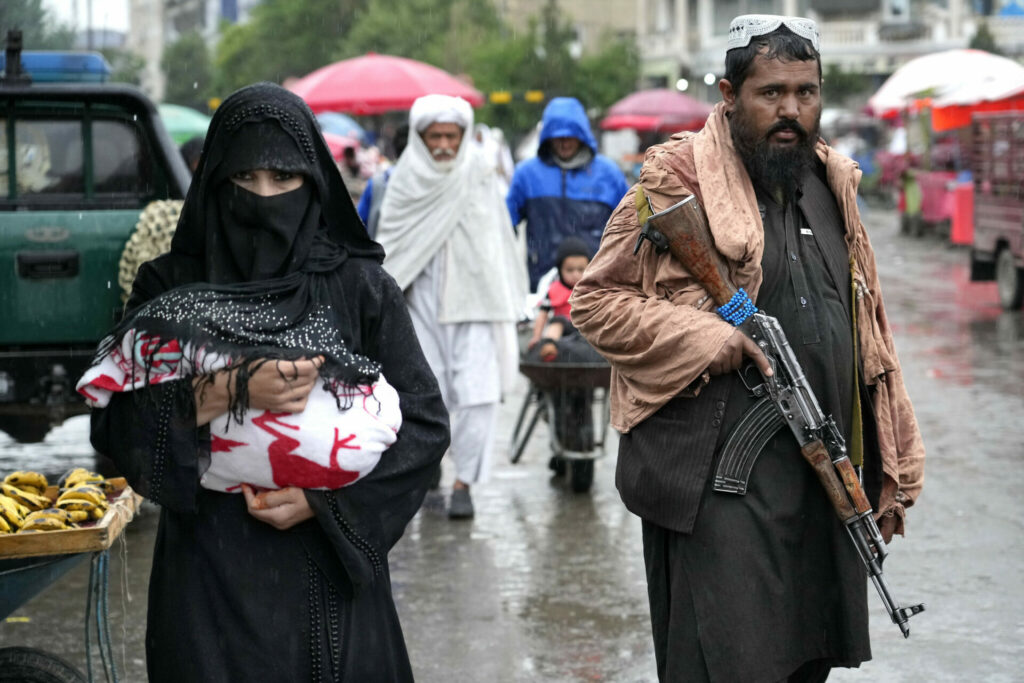Afghanistan is receding from view, as if enveloped by one of the dust-storms which periodically afflicts that country. The minds of our statesmen are elsewhere. They believe – quite rightly – that Russia’s war in Ukraine poses the most critical threat to European security in decades. All the chancelleries of Europe resound with the names of new and unfamiliar places: where once they spoke of Kabul and Kandahar, now they speak of Kyiv and Kherson.
Though we may now be distracted, sooner or later the West will need to pay attention to Afghanistan. The US’s withdrawal has created a new alignment of political forces there. In time, we may be drawn once again into the affairs of that country.
Since the Taliban returned to power, the situation has become unpredictable – and acutely menacing. “Afghans are giving their hungry children medicines to sedate them – others have sold their daughters and organs to survive,” begins a BBC report published last week.
Public floggings of alleged adulterers, thieves, and homosexuals have resumed, contradicting assurances on human rights given by the Taliban prior to their takeover. Since August, food prices have gone up by a quarter. Inflation, poverty, unemployment, extremism – all are rising.
With the country’s domestic affairs in flux, our leaders should search for the immutables in Afghanistan’s history. What endures? Geography, for one. Towering mountains, arid plains, forbidding deserts: these combine to make the country almost unconquerable. Poor infrastructure is another constant. Outside the major cities, state institutions exert little control. Political Islamism contributes to this lack of stable government.
In short, Afghanistan is almost uniquely vulnerable to external interference: a perennial playground for competition between the Great Powers. Believing that other countries will be deterred from intervention forever by the failure of the recent occupation is profoundly misguided.
China is one would-be player of the Great Game, once it resumes. Afghanistan’s perilous economic circumstances will make it hard for the Taliban to resist the lure of Chinese investment. What are China’s interests? Much is made of Afghanistan’s fabulous mineral resources – gold, chromite, lithium – but, by themselves, these will not tempt China into the fabled “graveyard of Empires”.
There are other reasons for China to engage with Afghanistan, though. One reason is regional security. Beijing has a strong interest in Afghanistan’s stability, not least because the countries share a 76 km land border at the easternmost point of the Wakhan Corridor. Another reason is economic growth. Mastery of Afghanistan grants China an overland route to Pakistan. That would connect China to a key regional partner, unleashing its goods onto Western markets, while at the same time strengthening its floundering Belt and Road Initiative.
In Afghanistan, India and Pakistan – who have one of the most fraught relationships in world politics – have found a new arena for their rivalry. Both countries desire regional security and improved trade, especially with relatively-untapped markets in Central Asia. (A Transcaspian railway project – which would connect southern Uzbekistan, Kabul, and Peshawar – has been in the works for some time. Any oil and gas pipelines connecting Central Asia and India must pass through Afghanistan, as well.)
Beyond that, however, their interests and methods diverge. Pakistan uses militant groups; India projects soft power. While Pakistan has historically enjoyed close ties with the Taliban, India made itself a partner of the Pashtun-led Northern Alliance. Pakistan is unlikely to match India’s billions of dollars in humanitarian aid. Both countries make tremendous efforts, both diplomatic and financial, to influence their northern neighbour. If one lapses, the other will advance. Tensions between India and Pakistan could spill over into a fragile Afghanistan, therefore.
Of Iran’s ambitions in Afghanistan we may be less worried in the immediate term. Despite their theological differences, the Taliban’s sweeping conquest was a major boon to Tehran. It represented a defeat for the United States and its ambitions in the Middle East, which Iran had long ascribed to an American plot to encircle it. Tehran’s traditional policy of “hedging” – providing support to both the Taliban and the Afghan government – will probably yield to a firm commitment to the victorious Taliban.
China, Pakistan, Iran: over the coming years, these countries will form a new constellation of political power in Afghanistan. The China-Pakistan Economic Corridor is underway, and will open a fruitful partnership between those countries. Meanwhile, Iran benefits – strategically and economically – from closer engagement with Beijing. For now, the West can tolerate it. But for how long? And what of Western allies in the region?
At the moment, Afghanistan’s neighbours exhibit little interest in the country. Exhausted by a pandemic and distracted by a parlous global economic situation, they focus instead on their internal affairs. But this cannot last. Sooner or later the winds will die down, and the plains of Afghanistan will reappear once more.


